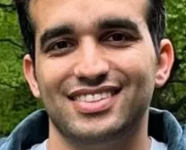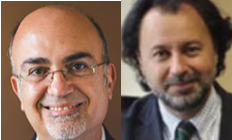guilty to attempting to hire a hitman to murder a broadcaster critical of the Islamic Republic—is now a fugitive after failing to show up at a hearing in Los Angeles.
The case raises a major issue: Has the regime decided to resume assassinations of dissident Iranians abroad 17 years after halting that killing program?
Mohammad-Reza Sadegh-nia, 43, despite suspicions that he was an agent of the Iranian government, was granted court permission to travel to Iran in the fall to visit his ailing father on condition that he return to California by October 25. But Sa-deghnia did not return.
On November 30, he was scheduled to appear at a hearing in Los Angeles Superior Court for a progress report on his probation. But he did not appeared. Deputy District Attorney Ron Goudy said a bench warrant has now been issued for Sadeghnia’s arrest.
Sadeghnia’s name appears among the US government documents recently published by the WikiLeaks website. A January 21 diplomatic cable from the US Embassy in London said Sadeghnia admitted being an Iranian agent and conducting surveillance on two broadcasters critical of the regime in Tehran.
The broadcasters were Reza Nourizadeh, a London-based commentator who has worked for Voice of America among many other press outlets, and Jamshid Sharmahd, who runs radio programming out of Los Angeles for Tondar, an opposition group that is monarchist by ideology but not associated with the Pahlavi family.
Sadeghnia, who lived for years in Ann Arbor, Michigan, before moving to southern California in 2008, was arrested in July 2009 at a hotel near the Los Angeles airport. Prosecutors claim he tried to hire a hitman to kill Sharmahd for a fee of $32,000. According to police, the hitman rejected the offer and instead reported Sadeghnia, who pleaded guilty. Sadeghnia then spent a year in jail before being placed on probation in July.
Sadeghnia’s lawyer, Mich-ael Zimbert, said he hasn’t heard directly from his client, but said he received an e-mail from Sadeghnia’s brother saying Sadeghnia could not return from Iran in time for the court date.
Zimbert downplayed the severity of the charges leveled against Sadeghnia. He said the charge was the result of drunken statements, and said Sadeghnia pleaded guilty because he had encouraged him to—believing that a jury would be biased against an Iranian.
“In his drunken state of mind, he may have said something, but he never had the ability to assassinate anyone,” Zimbert said, adding that the FBI interviewed Sadeghnia but federal authorities did not bring any federal charges, as would be normal if they thought a foreign government was trying to organize murders on US soil.
In an interview with The Associated Press earlier this month, Sharmahd said he was cautious when he first met Sadeghnia. He said Sadeghnia repeatedly asked to meet him. “Usually, someone who wants to help, with a donation or a suggestion, just does it and lets it go. They might email or call to follow up, but that’s it. His repeated insistence to see me in person was suspect,” said Sharmahd, who also hosts a radio show popular within the Iranian-American community.
Sharmahd said because he has long advocated for regime change in Iran, he was very cautious around Iranians and therefore wasn’t surprised to learn from police that he was a possible assassination target. “Iran is a big power,” he told the AP. “There’s no rights or laws that they uphold, they’re violent against their detractors and this is something every detractor, including myself, knows.”
The leaked diplomatic cable went on to say that following Sadeghnia’s arrest, the FBI shared information about him with British authorities. Sadeghnia “apparently admitted his surveillance” of Sharmahd and Nourizadeh and claimed he was an Iranian agent.
Acting on the FBI’s information, British authorities alerted Nourizadeh that Sadeghnia was “working for the Iranian intelligence services and gathering information on Nourizadeh’s habits. According to the cable, Nourizadeh told authorities Sadeghnia had contacted him several months before, claiming to be a “big fan.”
The London-based Iranian commentator said he met with Sadeghnia several times in London and Washington, D.C., but grew suspicious after Sadeghnia insisted on taking numerous photos of Nourizadeh, his car and garage. Soon after, “a well-placed friend” told Nourizadeh that Sadeghnia’s photos had appeared on the desk of Iran’s deputy intelligence minister, Majid Alavi, according to the document, at which point Nourizadeh cut off all ties.
The Islamic Republic is known to have long dispatched spies to report on the activities of dissidents in the expatriate community. In the 1980s and 1990s, it killed a few dozen exile activists, mainly in Europe and Turkey. The most prominent killing was that of Shahpour Bakhtiar, the last prime minister under the ancien regime.
No such killings have been noted since 1993, however. They appear to have been ended by the Islamic Republic after a German investigation of the 1992 killings of four Kurds in Berlin’s Mykonos restaurant directly implicated senior Iranian officials.
Only one such murder is known with certainty to have been carried out inside the United States. That was the 1980 killing of Akbar Tabatabai, a pre-revolution embassy officer, in Bethesda, Maryland. The killer was an American black Muslim, David Belfield, who swiftly fled, with help from Iranian embassies along the way, to Iran, where he still lives.
If Iran has resumed plans to assassinate dissidents abroad, it would be a major development. But the fact that the FBI refused to bring any federal charges against Sadeghnia suggests it does not believe there is any such official assassination scheme.
On the other hand, the reports from Nourizadeh and Sharmahd on Sadeghnia’s alleged interest in physical contact go beyond the normal bounds of data collection on dissident actions.
























